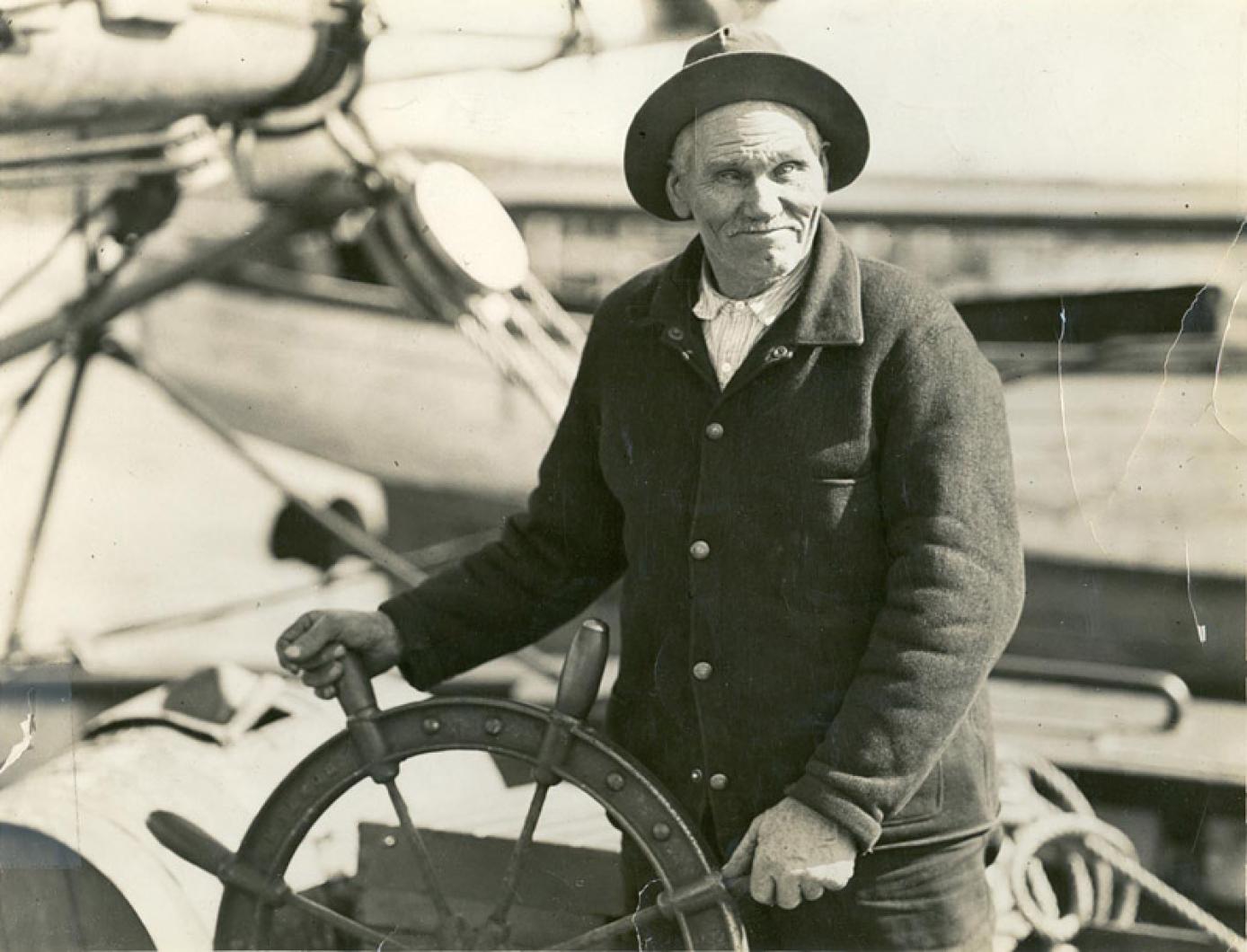From the May 11, 1973 edition of the Vineyard Gazette:
It may seem to the casual reader of the Vineyard Gazette that in the lexicon of the famous, the name of Tilton appears with unusual frequency. This is true and for a very good reason. The Tiltons have always been numerous on the Island and they still are. There have been North Road Tiltons, Middle Road Tiltons, Lambert’s Cove Tiltons, Menemsha Tiltons and, eventually, Vineyard Haven Tiltons. Separated as they were, by distance and relationship, there was one common ancestor, the pioneer, Samuel Tilton.
This sketch is about William S. Tilton, one of six brothers, among whom were Cap’n George Fred Tilton, Cap’n Zeb Tilton, and Welcome Tilton.
William, Welcome and George Fred sailed on whaling voyages, but Welcome found the life “too lazy,” as he said. George Fred made whaling his career, and became master by virtue of his skill as a whale-killer and ability as a seaman. Welcome went into the coasting trade and eventually became a fisherman, while Zeb was always a coasting sailor from boyhood. William saw opportunity elsewhere in deepwater carriers, and for years he sailed in English ships, freighters and traders.
His active years were lived during the age of sail, and the average person realizes that in sailing ships there was much hard work to be done especially during the years before steam donkey engines were carried to handle sails and anchors.
It has been said that creole overseers in the Gulf ports first discovered that a song helped mightily when men were putting forth their utmost at such a task as mast-heading a heavy sail or heaving in an anchor. They would order men to sing when they appeared to flag with the command “Chantez! Chantez!” Corrupted to chantey, the custom spread among seafarers and in time songs and chants were composed to be used in different tasks aboard ship.
Their value was recognized by even the most hard-boiled mates and masters.
William Tilton learned this very early in life. He may have begun his singing career while whaling, but whether or not this was so, he did very little else in the British merchant service according to his own tell. “All I did was sit on the pawl-post and sing,” he used to say, “while the rest were heaving and hauling!” Thus he sang his way on many an ocean, for he told stories of India and China and of many other places which he had visited.
Long after he had worked as a fisherman during his later years, he could sit and sing for hours, each song being different and delivered in a voice that was clear and piercing as a bugle call.
That his life as a sailor was adventurous may be taken for granted. No sailor could cross an ocean in a sailing ship without meeting adventure in some manner again and again, becoming involved in tragic happenings where men were injured or met death in various forms. William Tilton lived through such a passage, emerging hale and hearty as by a miracle.
He had shipped on an English brig, a trader, which sailed from Liverpool for the Niger River on the West African Coast.
The men were warned against sleeping on deck at night when the mists rose from the river and spread the fever, perhaps, or drew the mosquitoes whose bite caused malaria. However, the heat was terrible, especially in the poorly ventilated forecastle, and the men went on deck to sleep. The result was that one by one they were stricken, and one by one they died. Only William Tilton escaped.
Even the captain of the brig was laid low with fever. He was the only one who recovered. When he was able to return to duty, he and Tilton were all that were left. The two men, faced with the task of taking home ship and cargo by themselves, did not hesitate. They slipped their cable, for they could not raise the anchor, made sail, ran down to the sea and laid a course for England.
For weeks they had no warm food or drink because neither dared to leave the deck long enough to cook. In case of any trouble the two would need each other every minute and they dared not separate for any purpose. “Our hands and feet swelled terribly,” Mr. Tilton said, “and we looked like a couple of scarecrows. And when we were almost home we struck a storm that nearly finished us and the brig too, but we weathered it. Once we made port we were hospitalized, but in two or three weeks we were back to normal.”
As far as is known this was the last voyage that William Tilton made on a trader. It may have been his voyage for such purpose, but in any case it did not leave him with any fear of the sea. Like all good seamen or boatmen, he respected the ocean and long after when he was sailing as mate with his brother Zeb, he laid aloft and sent down a fore-topmast which was in danger of “fetching away,” he said.
William S. Tilton sang almost as long as he breathed, and many of his songs have been preserved by E. Gale Huntington, a relative in-law, who also sings them.
Compiled by Hilary Wall (library@mvgazette.com).




Comments (7)
Comments
Comment policy »